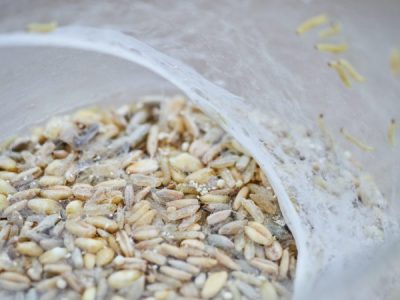Managing a rental property in Brisbane or the Gold Coast comes with its unique set of challenges, one of which is pest control. Understanding the responsibilities and best practices for pest control in rental properties is crucial for both landlords and tenants. This article will delve into the specifics of pest control for rental properties in Queensland, Australia, highlighting the roles of landlords and tenants, and providing guidance on maintaining a pest-free environment.
Understanding the Legal Framework in Queensland
In Queensland, the Residential Tenancies and Rooming Accommodation Act 2008 outlines the responsibilities of landlords and tenants regarding pest control. It’s essential for both parties to familiarize themselves with these regulations to ensure compliance and avoid disputes.
Landlord Responsibilities
- Initial Pest Control: Landlords are generally responsible for ensuring that the property is pest-free at the start of the tenancy. This includes conducting initial pest inspections and treatments if necessary.
- Structural Maintenance: Landlords must maintain the property in a way that prevents pest infestations. This includes repairing any structural issues that could allow pests to enter the property.
According to the RTA “All Queensland rental properties must meet minimum housing standards. To meet these standards, the property manager/owner must ensure the property is free from pests when the tenant moves in and throughout the tenancy agreement. This does not apply if the pests are in the property because of the actions of the tenant.” (https://www.rta.qld.gov.au/pests)
“The property manager/owner cannot require the tenant to:
- leave the property in a better condition than it was in at the start of the tenancy (e.g. require pest control when the property had pests when they moved in, or require professional pest control if this was not done at the start)
- use a specific pest control service
- pay a set fee for a pest control service
- use a particular pest control product
These are offences under the Act.” (https://www.rta.qld.gov.au/pests)
Tenant Responsibilities
- Day-to-Day Pest Control: Tenants are typically responsible for managing day-to-day pest control. This includes keeping the property clean and taking measures to prevent pest infestations.
- Reporting Issues: Tenants should promptly report any pest infestations or potential risks to the landlord.
“The tenant must ensure the property meets the same standard at the end of the tenancy as it did when they moved into the property. The tenant should also inform the property manager/owner as soon as possible if they become aware of vermin on the premises.” https://www.rta.qld.gov.au/pests
Queensland Government – Residential Tenancies Authority
Best Practices for Landlords
As a landlord, taking proactive steps can prevent pest issues and protect your investment.
Regular Inspections
- Schedule Regular Inspections: Conducting regular pest inspections, by a professional pest control service, can identify potential issues before they escalate.
- Use Trusted Services: Employ services like Cure All Pest Control, known for our expertise in pest control in Brisbane and the Gold Coast.
Addressing Structural Vulnerabilities
- Seal Entry Points: Ensure that cracks, holes, and other potential entry points for pests are sealed.
- Maintain the Property: Regular maintenance of the property, including gardens and external areas, can reduce the likelihood of pest infestations.
Best Practices for Tenants
Tenants also play a crucial role in maintaining a pest-free environment.
Cleanliness and Hygiene
- Regular Cleaning: Keeping the property clean and free of food scraps can significantly reduce the risk of pests.
- Proper Waste Management: Dispose of garbage regularly and ensure bins are sealed.
Reporting and Cooperation
- Prompt Reporting: Inform the landlord immediately if you notice signs of pest infestation.
- Cooperate with Pest Control Efforts: Work with the landlord and pest control professionals to address any issues.
When to Call in the Professionals
There are situations where professional pest control is necessary:
- Significant Infestations: For severe or persistent pest problems, professional intervention is required.
- Expertise and Safety: Professionals have the expertise and equipment to safely and effectively deal with pest issues.
Cure All Pest Control offers comprehensive pest control services for rental properties in Brisbane and the Gold Coast.
Navigating Pest Control in Shared Spaces
In multi-tenant buildings or complexes, coordinating pest control efforts can be more challenging.
- Landlord Coordination: Landlords should take the lead in organising pest control in common areas.
- Tenant Communication: Tenants should communicate with their neighbours and the landlord to ensure a coordinated approach to pest control.
Conclusion: A Collaborative Approach to Pest Control
Effective pest control in rental properties requires a collaborative approach between landlords and tenants. By understanding their respective responsibilities and employing best practices, both parties can contribute to maintaining a healthy, pest-free living environment.
Whether you’re a landlord or a tenant in Brisbane or the Gold Coast, Cure All Pest Control can help you manage pest control in your rental property. Our team of experts is equipped to provide tailored solutions that meet the unique needs of rental properties. Contact us today to ensure your rental property remains a comfortable and pest-free environment.
Contact Cure All Pest Control for professional pest control services tailored to rental properties.





